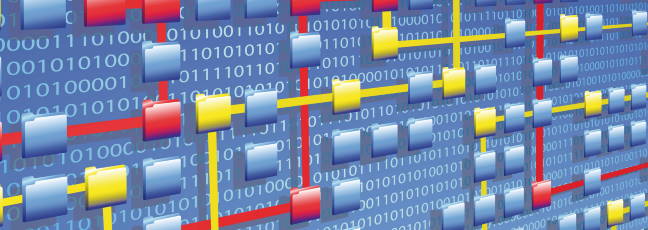Academic stories: Xixi Lu
ICPM academic stories challenge and study conference roomNarrated by Xixi Lu

Xixi, tell us a bit about yourself and your research institute!
Hello! My name is Xixi Lu, and I’m currently an assistant professor at Utrecht University. Specifically, I'm part of the Department of Information and Computing Sciences (ICS) within the Faculty of Sciences. I am a member of the Business Process Management & Analytics group led by Hajo Reijers. My research interests focus on methods, approaches, and algorithms to analyze complex event data for understanding and predicting the behavior of processes. The ICS department has grown a lot in the last few years. We now have 22 full professors, each specializing in various disciplines of computer science. We cover a wide spectrum of research areas, including Human-Computer Interaction (HCI), Data and Artificial Intelligence (AI), Algorithms, and Information Systems. This diversity of expertise fosters a rich environment for interdisciplinary collaboration and innovative research.
When and why did you first come up with the idea to do research in process mining?
My journey into the world of process mining began during my undergraduate years as a young, naïve Computer Science student when I had the privilege of learning from Professor Wil van der Aalst about Petri Nets. Wil would show amazing animations of Petri Nets models, helping us to understand. I still remember the philosopher's dining problem; the others were trying to model it, while I was trying to understand why these esteemed philosophers had to fight each other for the forks!
As I continued my master's project under the guidance of Dirk Fahland, I delved into the complex ERP systems and tried to use process mining to discover artifacts, their lifecycles, and their interactions. What made this journey more enriching was the stimulating discussions with Dirk. His thought-provoking questions kept me constantly pondering, and I relished the freedom to explore various directions and ideas. After this project, it was very clear to me that I wanted to work on this a bit more.
I was trying to find out what doing a PhD is like. And somehow, I started forming this idea that a PhD is like doing eight master projects, investigating interesting process mining topics, collaborating with brilliant people, exploring and having adventures while getting paid for all of that. How amazing, like a dream come true. So, I started a PhD with Wil as my promotor and Dirk as my daily supervisor. It was indeed a dream coming true! I had a lot of fun and the chance to work with many brilliant people. I appreciated so much the freedom I was given during my PhD. (Nevertheless, a recommendation to the younger candidates would be: don’t forget to connect these fun projects!)
What is your favorite “Eureka!” moment you had while conducting your research?
When it comes to my favorite “Eureka!” moments in research, I must say that I tend to experience many small ones, and I’m still waiting for one favorite moment. These moments may not seem very significant at the time, and I often find them to be almost like tiny puzzle pieces that slowly fit together over time.
For example, the Process Mining Project Methodology (PM^2) was a side project during my PhD. I was very interested in the real-world applications of process mining techniques and how to support analysts in such projects. Spending hours on data analysis, validation, and crafting the figures to make them fit into the page limits while discussing nuances with Maikel and Wil, such as the difference between event data and event logs. To my surprise, PM^2 gained recognition and saw adaptations in the research community. I’ve had similar experiences with artifact-centric and partial orders research. For me, it’s not about individual moments but the cumulative effect of these small moments.
How was it when you got awarded the Best PhD Thesis Award (among many other awards)?
Regarding the Best PhD Thesis Award, I was not expecting to receive the award at all. Knowing their work, I think the previous best thesis award receivers have set the bar very high. Also, I didn’t receive any awards during my PhD! It felt amazing, and I am extremely grateful for it! It made me feel that the thesis received recognition, and my work and effort were the seeds planted that had grown into a small leaf and made a place in this world.
What are the investigations in process mining your research has been mostly devoted to? What do you see as a major challenging & attractive factor in process mining?
Since I have considered my PhD as eight fun master projects and continued a bit to work on the fun projects I am interested in, I have invested in multiple diverse research directions, in addition to the classical process mining topics. I list five of them. Below, you can find the references I mention in the following.
1) Firstly, connecting events, which I consider artifact-centric, object-centric, event graphs, and partial orders under this direction. Instead of a sequence/stream of events, we start to explore how to leverage the relations between the events to connect the events, either via objects or artifacts or via other types of relations, to derive interacting processes and reasoning about their behaviour. I was super happy when Sander and Bas were interested in partial orders, too, and we finished our survey and outlook [1].
2) Together with many brilliant researchers from our community (including Mozghan, Laura, Remco, Avi, Robert, Suriadi, Moe, and Arthur), I've delved into the study of process patterns and event abstractions, contributing to the understanding and discovery of complex processes [2, 3, 4, 6].
3) With Jelmer, Henrik, Niels, and Hajo, we started the investigations into causal and stochastic aware processes, which has been a fascinating journey. This research line seeks to understand how causality and randomness influence process behavior and outcome, as we showed [5, 6, 10].
4) With Vinicius, Iris, and Inge, we further extend or improve the methodologies for performing process mining projects. The topics range from data extraction [7] to log preprocessing [8] and result evaluation [9].
5) Following the giants in our field, together with my PhD candidate, Suhwan Lee, and my master's students, we have also ventured into the realm of predictive process monitoring (PPM), process optimizations, and explainability [10, 11]. In particular, Suhwan has been focusing on PPM in the event streaming settings and has investigated the stability of predictive models. He will be presenting the work at ICPM 2023, so stay tuned!
To summarize, these research directions highlight the diversity of my interests; each has its unique challenges and rewards. I find this interdisciplinary nature of process mining a major attracting factor!
How do you see process mining in the future?
I find the concepts of processes and event data to be exceptionally intriguing. They serve as a foundational framework through which we can delve into the dynamics of time and the relationships between people and activities. With these concepts, we explore the unfolding and folding of time, examining how events and people interact within its continuum. When unfolding, we see sequences of events; when folding the time, we see processes and patterns. The community has started investigating the causal and stochastic processes, trying to unveil the fascinating interplay between them. I see process mining everywhere.
[1] Partial-order-based process mining: a survey and outlook
[2] Interactive Multi-interest Process Pattern Discovery
[3] Discovering Hierarchical Processes Using Flexible Activity Trees for Event Abstraction
[5] Mining Statistical Relations for Better Decision Making in Healthcare Processes
[6] Looking for Meaning: Discovering Action-Response-Effect Patterns in Business Processes
[7] PM^2 : A Process Mining Project Methodology
[8] Bringing Rigor to the Qualitative Evaluation of Process Mining Findings: An Analysis and a Proposal
[9] Towards Understanding the Role of the Human in Event Log Extraction
[10] CREATED: Generating Viable Counterfactual Sequences for Predictive Process Analytics
[11] The Analysis of Online Event Streams: Predicting the Next Activity for Anomaly Detection
- This article has been updated on October 20 2023, 15:33.
- Narrated by Xixi Lu

